As the EV4EU project enters its final months, the Portuguese demonstration sites on São Miguel Island in the Azores are now fully operational and undergoing intensive testing. On March 31 and April 1, representatives from the institutions involved in the Portuguese Demo – INESC-ID, Smart Energy Lab (SEL), and EDP NEW – traveled to the Portuguese island to host two User Engagement Sessions. These meetings aimed at guiding both household and LREC users in managing the innovative EV charging management system developed under the project.
The two-day visit began with a user session attended by five of the six homeowners participating in the testing phase. Catarina Rocha from SEL delivered a presentation on the Portuguese Demo, helping homeowners better understand the project’s objectives and functionalities.
At this stage, participants are ready to use the EV4EU app, which tracks their charging routines. The app’s algorithm is designed to optimize energy use by avoiding continuous charging, thereby promoting more efficient energy management.
In the coming months, participants will be contacted regularly through the Living Energy Platform, which will help monitor key variables, collect feedback, and support ongoing improvements to the demonstrator. At the end of the monitoring period, the EV4EU team will carry out a comprehensive evaluation – including questionnaires and interviews – scheduled to take place between June and July 2025.
This specific use case will evaluate the performance of algorithms developed based on the dynamic evaluation of the devices´ priorities, test opportunity cost functions and assess the user’s concerns and perceptions of V2X.
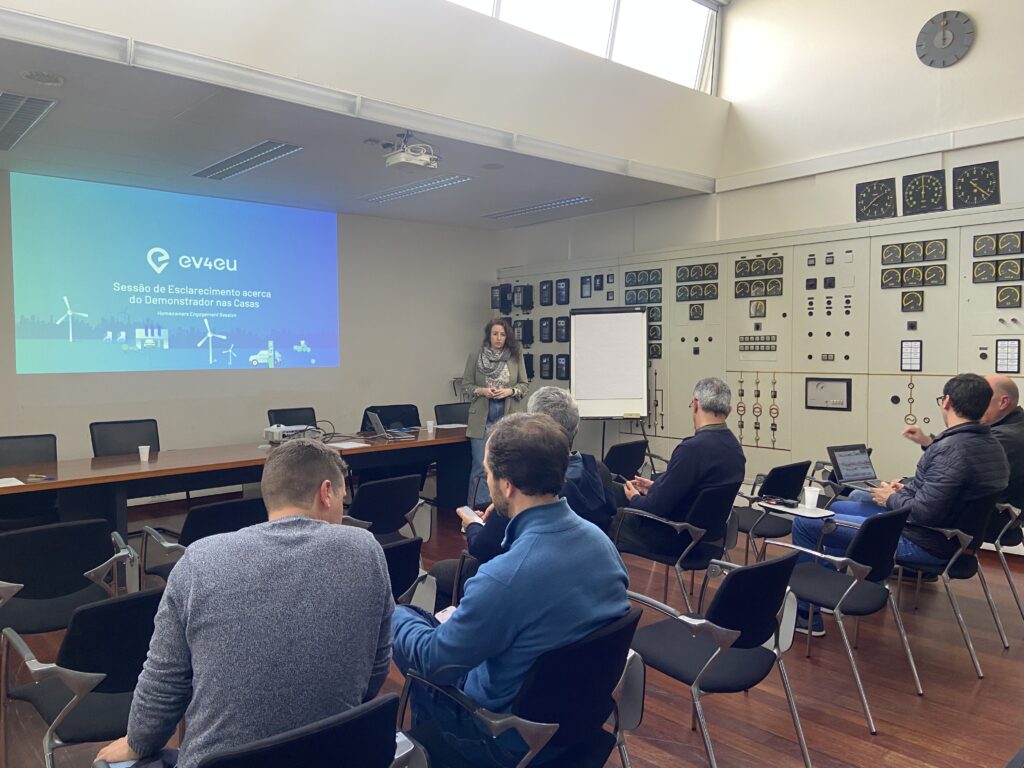
On Day 2, the team visited the Regional Civil Engineering Laboratory (LREC – Laboratório Regional de Engenharia Civil) for a dedicated User Engagement Session with the Lab staff moderated by Catarina Rocha (SEL). The demonstration at LREC includes a controllable load, vehicle-to-building (V2B) integration, and service network functionality – all being tested under real conditions at the facilities.
A recent addition to the LREC demo is a new four-wheeled participant: a fully electric vehicle provided by Ilha Verde, a car rental and automotive services company based in the Azores. The company joined the EV4EU project by lending a branded EV4EU vehicle, now in use by a LREC collaborator. This vehicle is being exclusively charged at LREC charging stations, allowing the project team to closely monitor the energy profile and behavior of a user limited to this charging infrastructure.
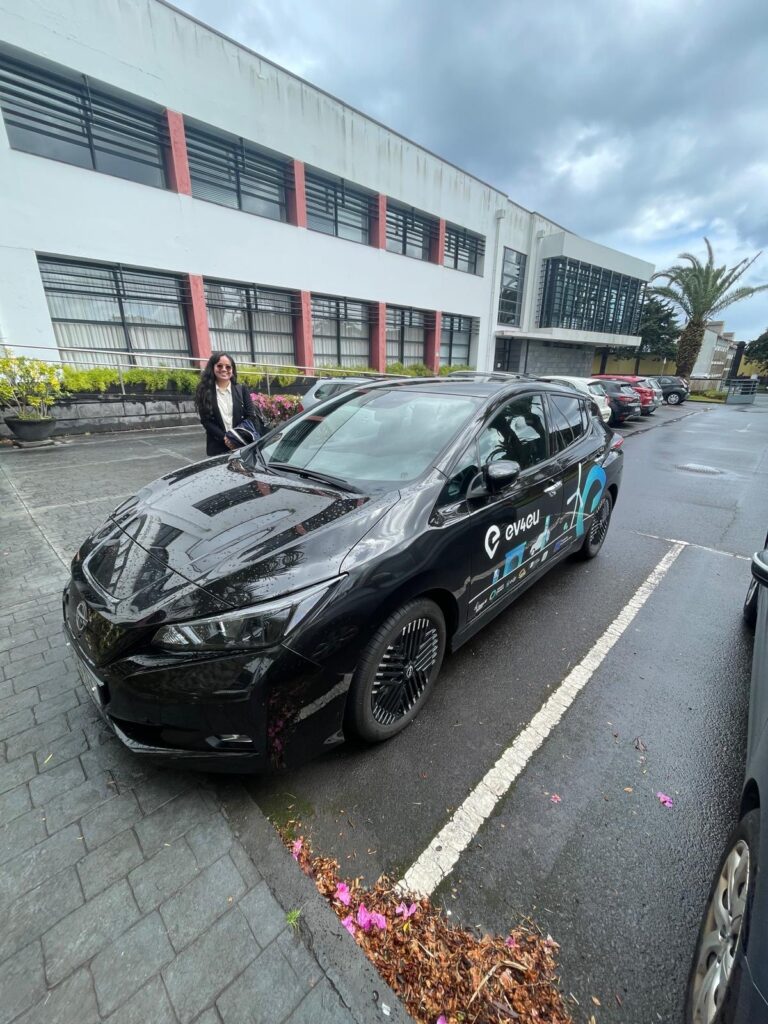
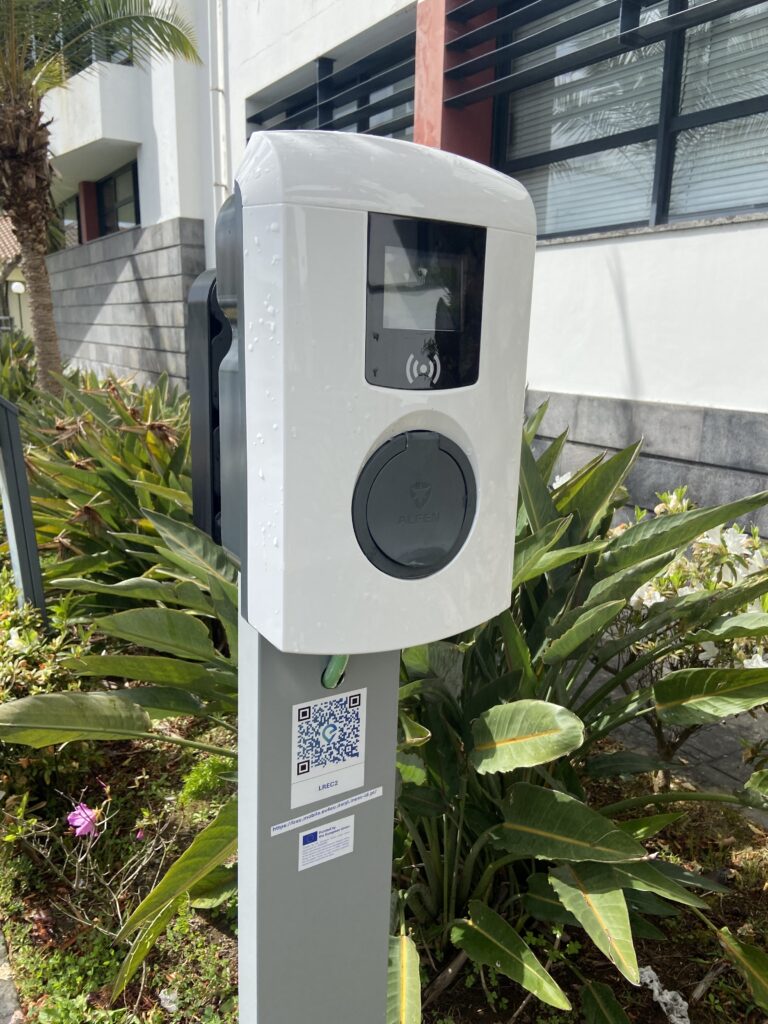
For the Azores Demo, EV4EU has developed a cutting-edge decision-making model supported by an app interface for users. In the case of the parking lot, the Demo will integrate the use of V2X (Vehicle-to-Everything) technology. By using advanced optimization algorithms, the system minimizes the overall operating costs of EV charging and increases self-consumption. It also enables key functionalities such as wind curtailment activation, congestion management services, and even exporting energy back to the grid.
The testing phase is crucial to validate the system’s performance across various scenarios, including seasonal changes, user behavior, and technical or economic variables.
This use case will help provide insights into how the system performs when users rely solely on the project’s charging ecosystem. Data from this scenario will complement the project testing and contribute to refining the decision-making model.
“At the end of the project we expect to have a better understanding of how innovative technologies can improve people’s lives, promote an optimized use of available energy and resources, and deliver smarter, more sustainable solutions for businesses”, shares Catarina Rocha.
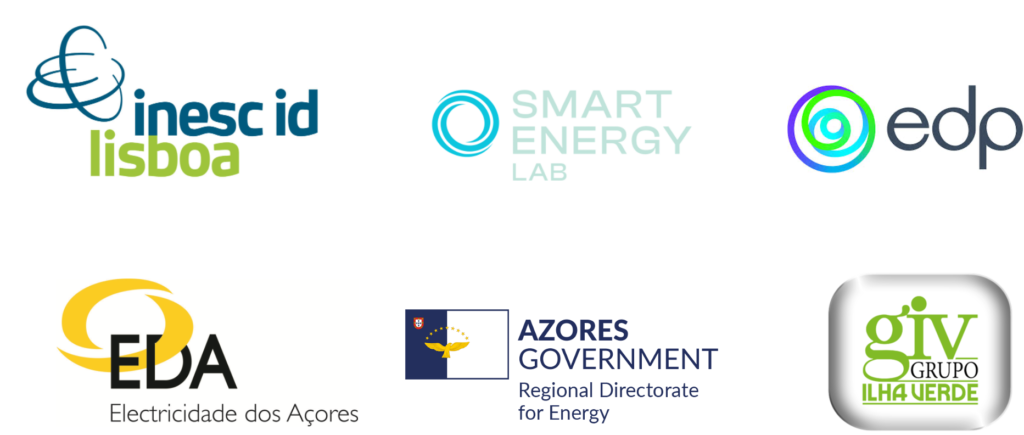


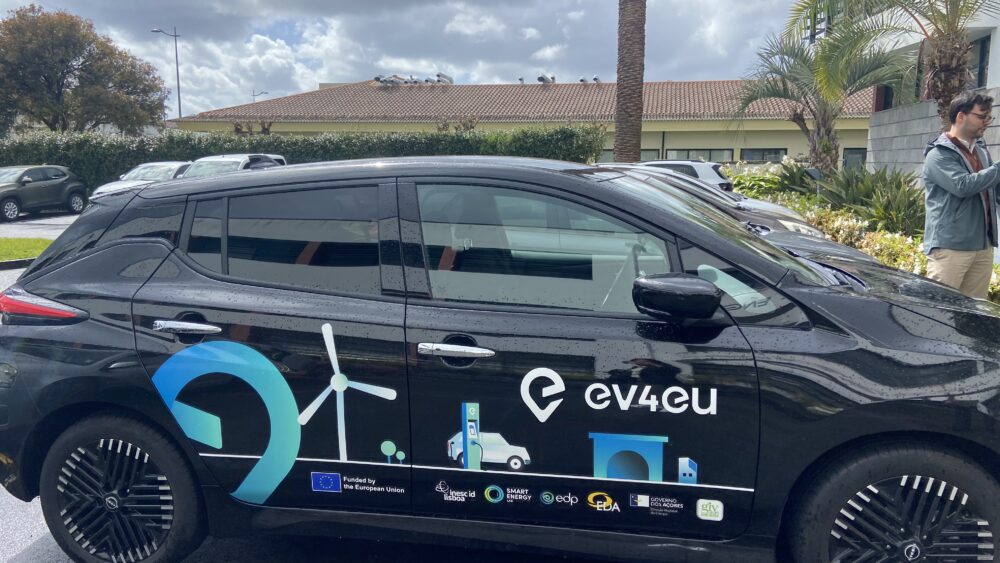
Comments are closed.